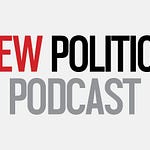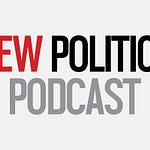There’s been a major breakthrough in the diplomatic relationship between Australia and China, with the Australian Prime Minister and Chinese President holding a meeting at the G20 summit in Indonesia. And this is a process initiated by both Anthony Albanese and Xi Jinping—it follows years of hostility from the previous Coalition government directed towards China, and a great deal of commentary verging on racism from the mainstream media.
The low point in the relationship was when the former Prime Minister Scott Morrison and Home Affairs Minister Peter Dutton accused China of deliberately causing the coronavirus outbreak in 2020: China retaliated by imposing trade sanctions on Australian goods and services to the tune of $20 billion.
All it took was some sensible people on both sides to start the dialogue, sit down in a room, discuss the issues, look at common ground, and create a pathway towards shared interests. Albanese has shown what constructive international diplomacy looks like, and it’s a stark contrast from the actions of the previous government, who just wanted to rattle the sabre and shout at everyone from the rooftops.
And the mid-term elections in the United States are over—there was talk of the ‘red wave’ coming through from the Republicans, but that never eventuated, and most of the candidates supported by former US President Donald Trump didn’t get up. The Democrats will still hold the Senate, and the Republicans will control the US Congress by a very small margin. This is America, but it’s an important election result for Australia and the rest of the world.
Many jurisdictions all over the world over the past few years have swung towards more liberal-minded or governments of a centre-left persuasion, and there was a feeling that after the election of a far-right Prime Minister in Italy, the world was going to start swinging the other way, and the US was going to continue the trend that started off in Italy. There was a feeling that the ‘red wave’ coming in the US was going to signal a return of Trump to the Presidency—and he has announce his intention to run in 2024—but if he does get to the final election race, he might be in for a surprise.
But we’ve got a more insidious problem in Australia and that’s sports betting. It was revealed during the week that an AFL umpire was arrested for betting on the Brownlow Medal—but it’s not really a surprise: we almost get more betting time than game time. Gambling on sports in Australia is around $8 billion per year, SportsBet spends $130 million on advertising each year as well, and also pays the AFL $2 million each year for advertising. And it’s everywhere—it’s at the game, it’s on during a broadcast—a sports panel will discuss a game, and then launch into a segment about the betting odds, and which bet will offer the best return—and there’s a lot of money involved here, but this has become a big problem in sport.
This is a public episode. If you’d like to discuss this with other subscribers or get access to bonus episodes, visit newpolitics.substack.com/subscribe













Share this post